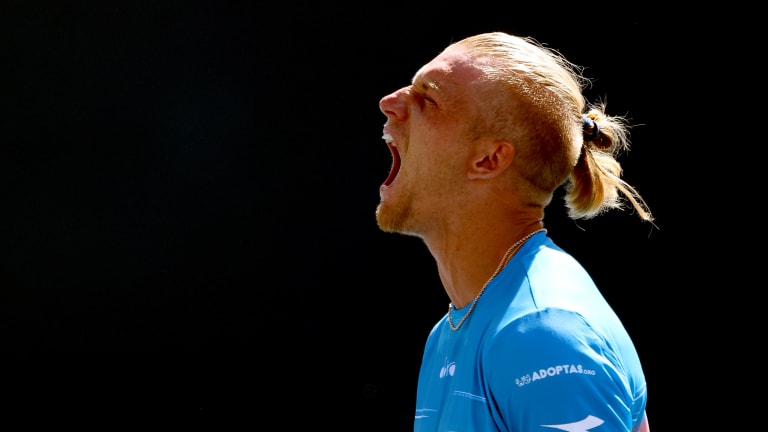Tennis.com Interview
Back up after summer tumble, Alejandro Davidovich Fokina plots second Slam QF at US Open
By Sep 04, 2022Tennis.com Interview
Danielle Collins launches iconic richsport merch collab
By Mar 07, 2025Tennis.com Interview
Zizou Bergs: From TikTok to Top 50 in Indian Wells?
By Mar 06, 2025Tennis.com Interview
Can Clara Tauson take “inspired” tennis to Indian Wells?
By Mar 05, 2025Tennis.com Interview
Anastasia Potapova: living single ahead of Indian Wells
By Mar 04, 2025Tennis.com Interview
Who is McCartney Kessler? U.S. college star one to watch in Indian Wells
By Mar 03, 2025Tennis.com Interview
What makes Mirra Andreeva so special?
By Mar 02, 2025Tennis.com Interview
Rodrigo Pacheco Mendez: inspired by Nadal, dreams of facing Sinner, Mexico's tennis answer?
By Feb 26, 2025Tennis.com Interview
Fly, TP, fly: Tommy Paul unlocks happy medium of taking the job seriously and having fun
By Feb 24, 2025Tennis.com Interview
Two Minutes with Mirra Andreeva, tennis’ new teen queen
By Feb 23, 2025Tennis.com Interview
Back up after summer tumble, Alejandro Davidovich Fokina plots second Slam QF at US Open
Set to face Matteo Berrettini on Sunday, the entertaining Spaniard has employed an aggressive approach that has made him a crowd favorite throughout the first week.
Published Sep 04, 2022
Advertising
Advertising
Advertising
Advertising

After capturing the New York crowd's imagination throughout the first week, can Davidovich Fokina capture a second Grand Slam quarterfinal?
© Getty Images